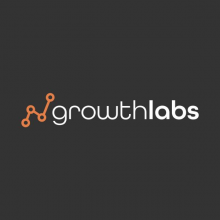
There are 6 Companies in Bristol
that provide Laravel Development Services!
Bristol is one of the most successful cities for tech startups in the UK. As a matter of fact, the city’s tech industry has a long history, and starting with 2020, the sector is booming. Things got so serious that even the area was name Silicon Gorge. ristol is one of the most successful cities for tech startups in the UK. As a matter of fact, the city’s tech industry has a long history, and starting with 2020, the sector is booming. Things got so serious that even the area was name Silicon Gorge.
Discover Top IT Companies in Bristol specialized in Laravel and other related services. Find the best IT service providers for your projects.
Laravel is a popular open-source PHP web application framework used for building web applications and websites. It's known for its elegant and expressive syntax, as well as its rich set of tools and libraries that simplify common web development tasks. Laravel was created by Taylor Otwell and released in 2011, and it has since gained widespread adoption in the PHP development community
Handpicked companies • No obligation to hire • 100% risk-free
Explore Top Laravel Development Companies in Bristol
A web design and development company based in Bristol, we offer website design services and search engine optimisation to small and medium businesses.
Services:
A Bristol web design company specialising in creating high quality, contemporary and user friendly websites.
Services:
B2B Digital Marketing Agency, driving lead generation and success for ambitious businesses across the UK.
We partner with you to create brilliant brands and slick websites. Established in 2009, Pixelfish was the brainchild of two unconventional thinkers....
Services:
We are a web design & web development agency. We design and build beautiful, search engine friendly websites. But there is much more to us than th...
Services:
I build custom websites and web apps that help solve problems and grow businesses by optimising online presence, and boosting website performance.
Filter Laravel Development Companies in Cities near Bristol
Dive deeper and find the company you need close to you or, from a specific city you prefer. Some of the best companies come from smaller places
Find more Laravel Development companies around the world
TechBehemoths is the world's most advanced and user-friendly platform to match IT Companies with real clients without hustle.
IT Industry In Bristol: Pros & Cons
Bristol is one of the most successful cities for tech startups in the UK. As a matter of fact, the city’s tech industry has a long history, and starting with 2020, the sector is booming. Things got so serious that even the area was name Silicon Gorge.
Another surprising fact is that Bristol was called the UK’s Leading Smart City back in 2017, a nomination that one wouldn’t expect from this city. The top was made out of 20 cities around the UK and surprisingly none of the other cities managed to reach the progress Bristol did.
Also, an interesting fact is that in 2018, Bristol hosted more than 35K digital jobs, and successfully launched 225 startups, according to the Technation report. The growth of the city as a hub for new tech would seem to be a continuation of this long tradition of engineering excellence and innovation.
Today’s success of Bristol in the tech & IT industry was only partially due to the long history of the industry in the area. Another huge contributor to the entire digital ecosystem is companies that promote and highlight the city’s digital behavior and leading innovations. The mutual support - from companies to the city and vice versa launched many incubators, partnerships, accelerators, and competitions that most of the time work for citizens.
Projects such as The Engine Shield, SETsqared Partnership, Silicon Gorge Pitching Competition, and Oracle Startup Cloud Accelerator marked the city’s digitalization and highly contributed to the economical and financial development of Bristol, but as well as of the entire area.
In addition, Bristol is the home of several tech giants that also invest and create most of the digital workspaces for the community. Companies such as Nokia, BT, Amazon, Vodafone, or Sony consolidate the IT sector in Bristol and support the tech and IT development as well as launching startup programs, incubators, accelerators, and partnerships as such that were named above.
The Southwestern UK region in IT is dominated by two tech hubs: Bristol and Cardiff. And respectively the only city to compare Bristol is Cardiff. While Bristol is considered one of the leading tech hubs in the UK, Cardiff also benefits from high popularity in the same industry.
Many companies are struggling to choose their next location or the second office in one of these two cities while planning to expand in the region. This happens because the IT infrastructure is pretty much similar, and big tech companies have offices in both locations.
Yet, Bristol is considered to lead in specific fields of IT, such as cybersecurity, business development for digital startups, and programming. At the other end of the table, Cardiff is more known for web and graphic design, content marketing, and digital marketing overall. In this way, we can categorize Bristol as a more technical city, and Cardiff as a creative center, even though there is no serious difference between these two.
In terms of salary competitivity, Bristol surpasses Cardiff. We took as an example the job of a Java developer and compared numbers. The average for Bristol is £57K/yr while in Cardiff is £42K/yr according to glassdoor. Even though the difference is obvious, please keep in mind what was mentioned in the city profile, while one is more technical, the other is more creative.
All in all, Bristol’s tech industry continues to develop and is expected to grow despite the pandemics in 2020-2021. Yet, the IT boom comes in entire Europe, not only in Bristol, so the leading position that the city has now can only be controlled by the community, the city’s effort, and large investors.
What is Laravel and what are its benefits for your projects?
Laravel is a popular open-source PHP web application framework used for building web applications and websites. It's known for its elegant and expressive syntax, as well as its rich set of tools and libraries that simplify common web development tasks. Laravel was created by Taylor Otwell and released in 2011, and it has since gained widespread adoption in the PHP development community. Here are the key aspects and features of Laravel:
-
Elegant Syntax
-
MVC Architecture
-
Artisan CLI
-
Database Abstraction
-
Blade Templating Engine
-
Middleware
-
Authentication and Authorization
-
Routing
-
Caching
-
Testing
-
Security
-
Community and Ecosystem.
-
Scalability
When choosing a PHP framework for a project, there are several alternatives to Laravel, each with its strengths and use cases. The choice depends on project requirements, familiarity with the framework, and specific preferences. Here are some notable PHP frameworks that often compete with Laravel:
-
Symfony: Symfony is a high-performance PHP framework known for its flexibility and modularity. It is often used for large, enterprise-level applications. Laravel actually uses several Symfony components under the hood. Symfony provides robust tools for building web applications, APIs, and microservices.
-
Zend Framework (Laminas): Zend Framework, now known as Laminas, is a mature framework that focuses on building scalable and enterprise-grade applications. It provides a collection of reusable components for various tasks, allowing developers to choose and integrate only what they need.
-
CodeIgniter: CodeIgniter is a lightweight and straightforward framework that emphasizes simplicity and speed of development. It's often chosen for smaller projects and rapid application development (RAD). While it has a smaller feature set compared to Laravel, it's known for its minimal learning curve.
-
CakePHP: CakePHP is a full-stack framework that focuses on convention over configuration (CoC). It comes with features like scaffolding, a built-in ORM, and a friendly community. It's known for its simplicity and convention-driven development.
Companies specialized in providing services using Laravel can significantly benefit relevant projects. Their expertise in Laravel development allows them to efficiently create customized web applications that meet specific project requirements. With a deep understanding of Laravel's capabilities, these companies can ensure the project benefits from Laravel's robust features, clean code structure, and security mechanisms.
They expedite development using Laravel's built-in tools and extensive package ecosystem, making them well-suited for both small-scale and enterprise-level applications. Security is a top priority, with specialists implementing best practices to protect against common web vulnerabilities, enhancing the project's safety, especially when dealing with sensitive data.
After the project launch, these specialized companies offer ongoing maintenance and support, addressing issues, applying updates, and ensuring the application's long-term reliability. They also excel in integration with third-party services and technologies, expanding the application's functionality and enhancing the user experience.
In addition, some companies may offer UX and design services, further improving the project's visual appeal and usability. Through rigorous testing and quality assurance, they identify and resolve potential issues before deployment, ensuring the application performs reliably across various devices and browsers.





